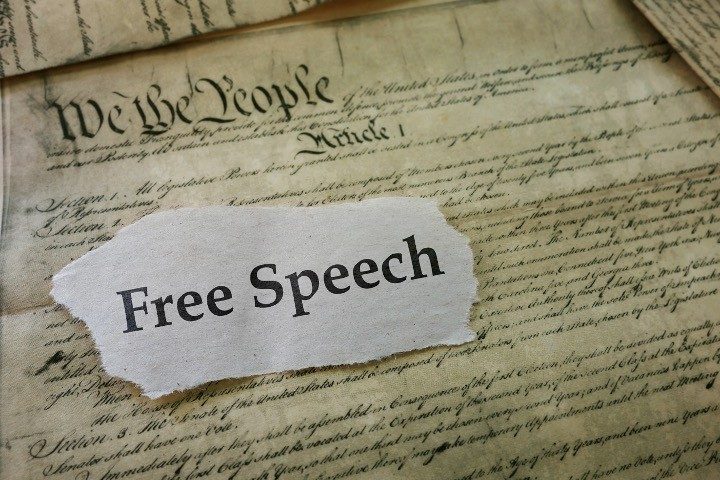
Stanford Law School students who shouted down a federal judge speaking on campus are about to learn a lesson in freedom of speech courtesy of Dean Jenny Martinez, who mounted a robust defense of said topic in a recent letter to students, faculty, and staff.
“There is temptation to a system in which people holding views perceived by some as harmful or offensive are not allowed to speak, to avoid giving legitimacy to their views or upsetting members of the community, but history teaches us that this is a temptation to be avoided,” Martinez wrote Wednesday. “I can think of no circumstance in which giving those in authority the right to decide what is and is not acceptable content for speech has ended well.”
In fact, she noted, granting such authority usually harms the marginalized — the very people today’s censors claim to represent — who need to be able to make their case to their broader population.
“Thus,” she explained, “I believe that strong protection for freedom of speech is a bedrock principle that ultimately supports diversity, equity, and inclusion and that we must do everything in our power to ensure that it endures.”
As befits a law-school head, Martinez presented a lengthy legal argument as to why the First Amendment, which California law applies to Stanford, does not permit a “heckler’s veto” over speech the heckler does not like, especially in the case of “a university classroom setting for a guest speaker invited by a student organization.” Stanford policy, too, prohibits such behavior.
Moreover, while “some students might feel that some points should not be up for argument and therefore that they should not bear the responsibility of arguing them (or even hearing arguments about them), … it is incompatible with the training that must be delivered in a law school,” she observed.
“Learning to channel the passion of one’s principles into reasoned, persuasive argument,” she averred, “is an essential part of learning to be an effective advocate.”
On March 9, U.S. Circuit Judge Kyle Duncan appeared at an event sponsored by the Stanford chapter of the Federalist Society. Duncan, an appointee of President Donald Trump, was scheduled to speak on recent Supreme Court decisions involving Covid-19, firearms, and social media.
Before Duncan could even be introduced, an obviously premeditated protest — “a well-planned and carefully orchestrated effort” by the Marxist National Lawyers Guild and its “useful idiots” among the campus Left, according to Alan Dershowitz — erupted, with students shouting obscenities including “We hope your daughters get raped” at Duncan.
School administrators in attendance, meanwhile, stood idly by. When Duncan finally asked one of them to intervene, Associate Dean for Diversity, Equity, and Inclusion Tirien Steinbach stepped forward and delivered a six-minute prepared speech dressing down Duncan, not his hecklers. Steinbach, The New American reported,
claimed that Duncan “literally denies the humanity of people” and told him, “Your work has caused harm.”
Mentioning “marginalized” people (i.e., everyone except white men), Steinbach also said that the judge’s “presence on campus represents a significant hit to their sense of belonging.” In summary, this “diversity” dean exhibited Jonestown-like cult devotion and essentially expressed that “free speech” was sorta, maybe, kinda, perhaps okay — but not for those disagreeing with her.
Duncan ultimately gave up on his presentation and had to be escorted off campus by two U.S. marshals.
Two days later, Martinez and Stanford President Marc Tessier-Lavigne sent Duncan a formal letter of apology, saying they were “taking steps to ensure that something like this does not happen again.”
Among those steps is placing Steinbach “on leave,” Martinez wrote in her March 22 letter. She declined to comment further on Steinbach’s status but added, “at future events, the role of any administrators present will be to ensure that university rules on disruption of events will be followed.”
Steinbach’s actions, she noted, also made disciplining disruptive students “problematic.” So instead, all students will be required to attend a “mandatory half-day session … on the topic of freedom of speech and the norms of the legal profession.”
Judging by their actions vis-à-vis Duncan, these students need far more than half a day of such training. Unless these future lawyers come to understand the value of unhindered discourse, free speech — and many other liberties Americans have long taken for granted — won’t stand a chance.



